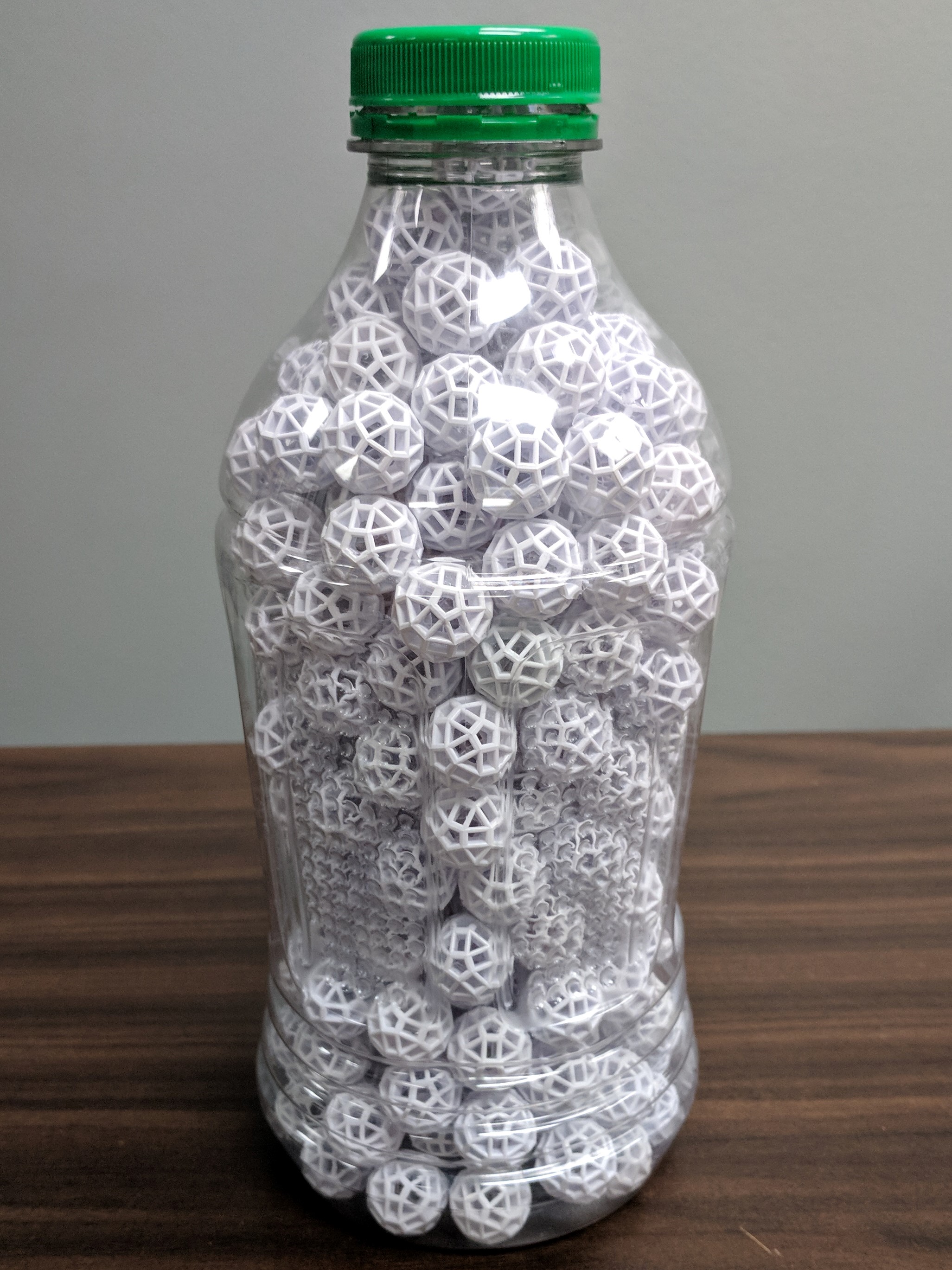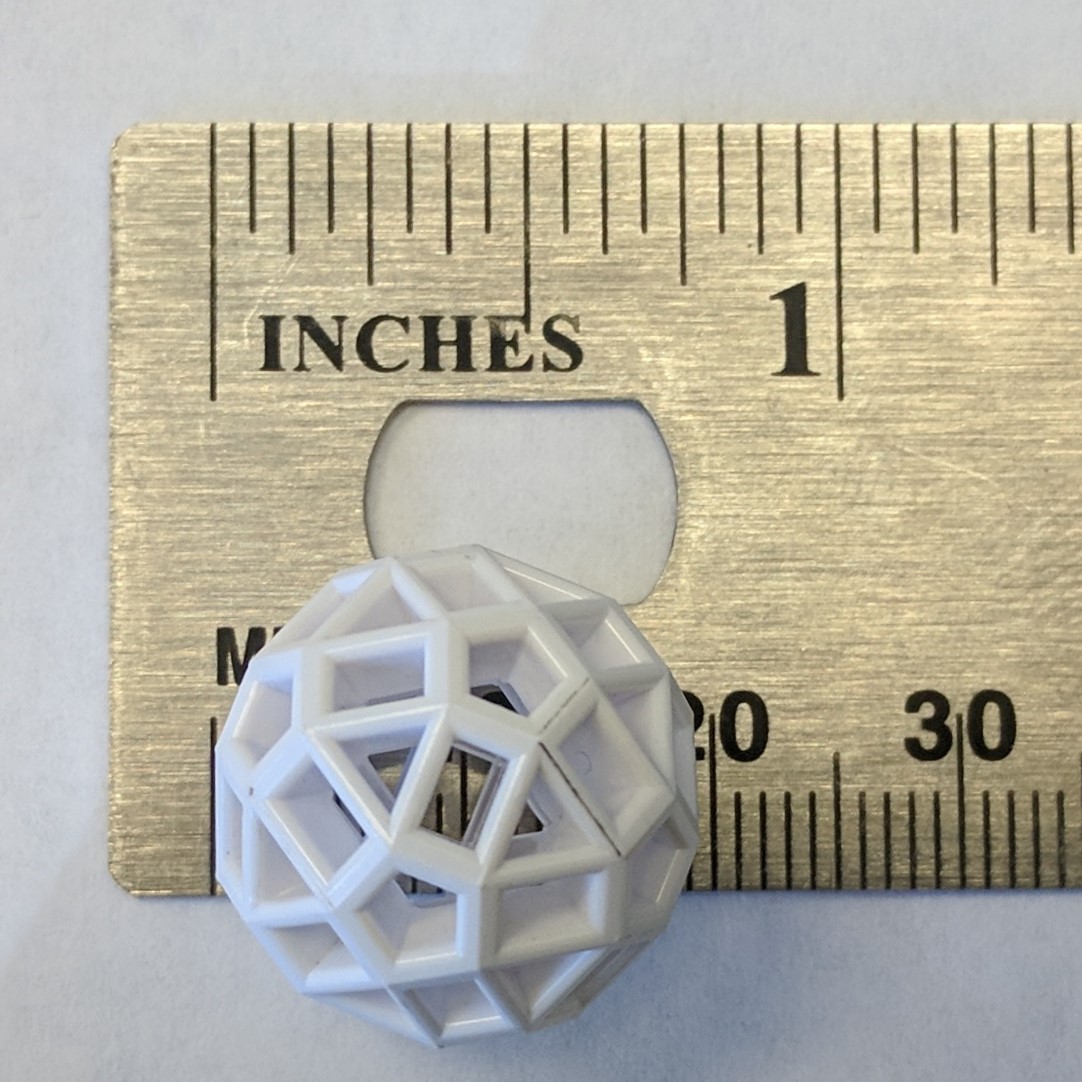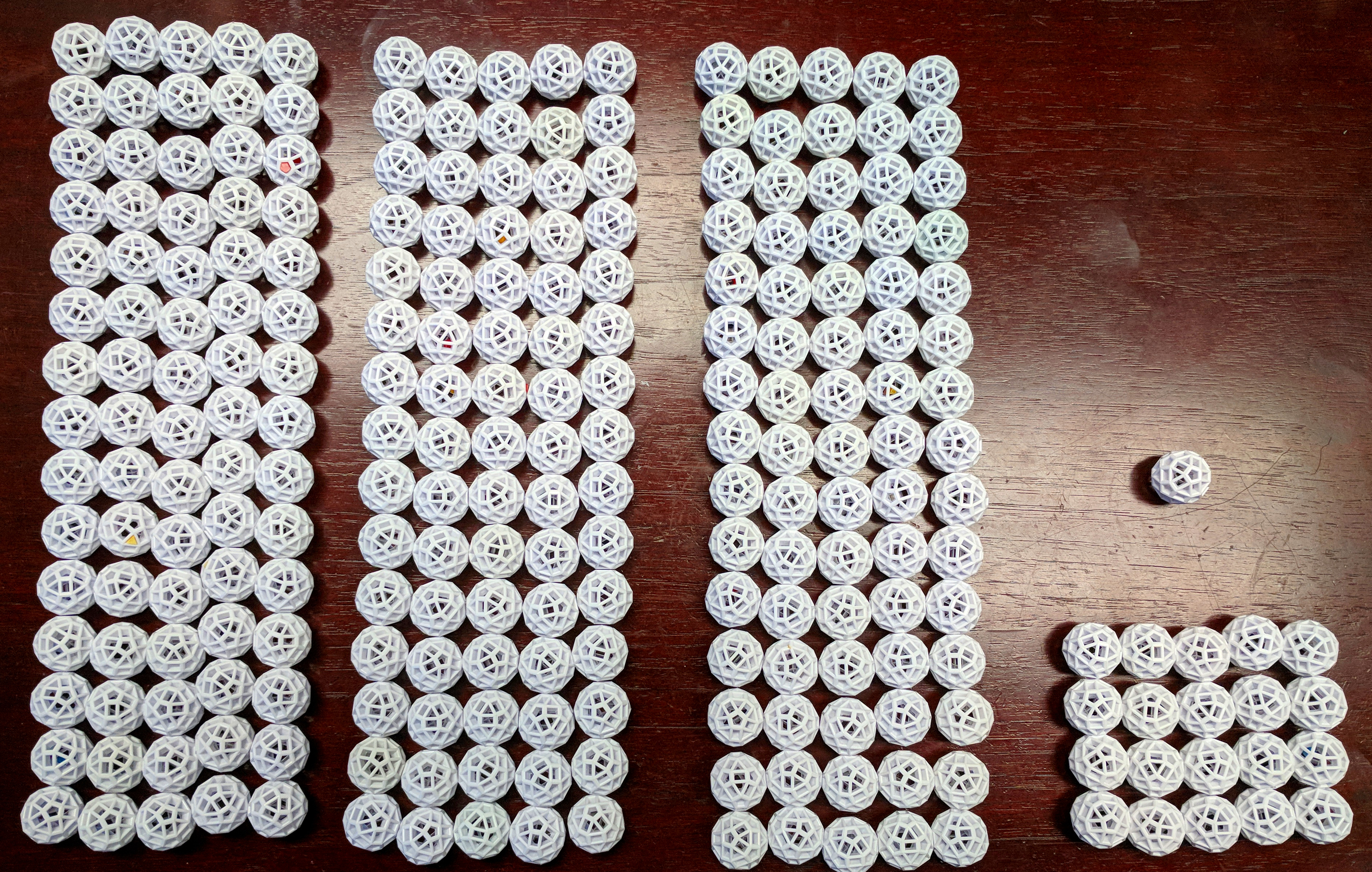Those of you who missed last week's estimation challenge can read about it by clicking here.
For part 2, after drinking all the water in the bottle, John decided to fill it up with the bottle with little spheres, as shown in the picture below:
Those of you with good eyes will notice that the objects were not actually small spheres, but actually polyhedra. For practical purposes, they are each roughly a sphere with a diameter of approximately $20$ millimeters:
From part 1 we say the volume of the bottle is approximately $1400$ mL. How many little spheres do you think fit inside the bottle?
Share your answer and reasoning below and we'll announce the person who got closest to the actual number next Friday. Good luck!


